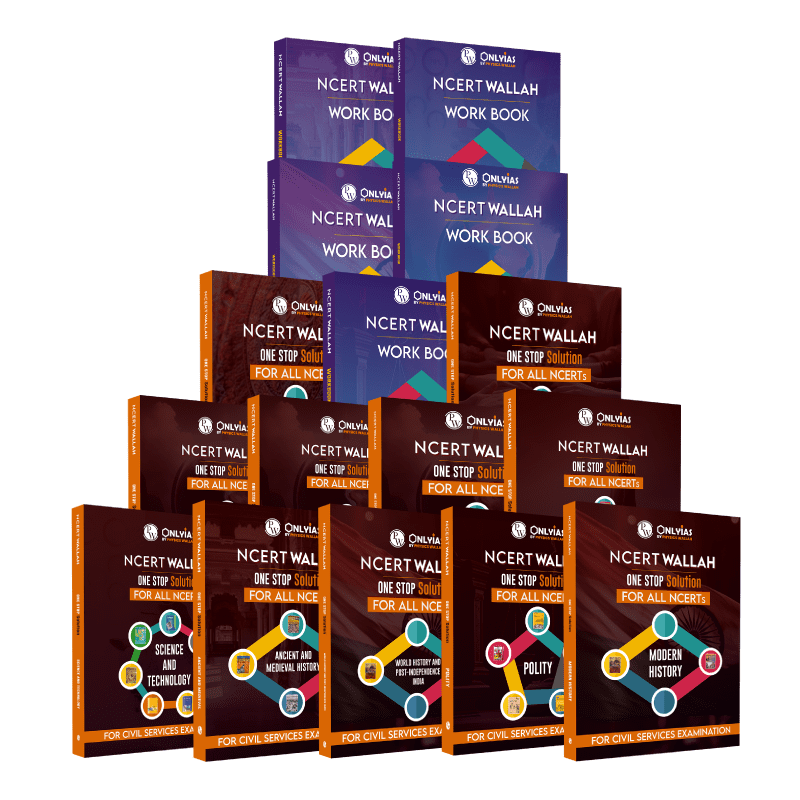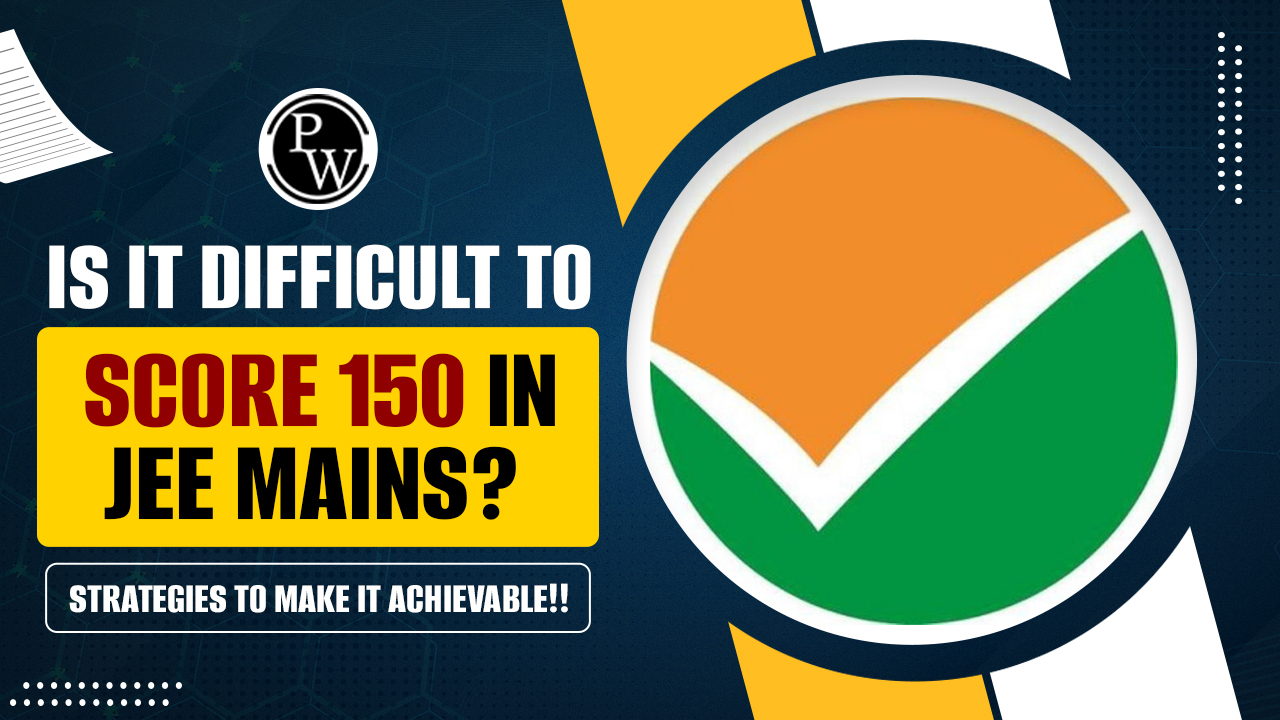Start UPSC Exam Preparation with NCERT Summary Books

UPSC Exam is one of the most competitive exams in India, conducted by the Union Public Service Commission. The UPSC CSE 2025 Notification was released on 22nd January 2025, offering candidates a chance to work in various prestigious fields such as administration, law enforcement, foreign services, and more, contributing to the nation’s development.
The UPSC Notification 2025 provides details for filling the vacancies in Group A and Group B positions within the Indian government. The examination process includes several stages: the Prelims, Mains, and a Personality Test. The age limit for candidates is between 21 to 32 years, with relaxations applicable for certain categories. Candidates are allowed up to 6 attempts, although this is also relaxable under specific conditions. Those who succeed in the examination can expect a starting salary of INR 56,100 per month, as per the 7th Pay Commission. Check out the below article for NCERT Summary Books.
Start UPSC Exam Preparation with NCERT Summary Books
When preparing for the UPSC Civil Services Examination (CSE), one of the most important steps is to build a strong foundation. The right way to do so is by thoroughly understanding the NCERT (National Council of Educational Research and Training) textbooks from Class 6 to 12. These books offer clear and concise explanations of various subjects like History, Geography, Polity, Science, and more, which are key components of the UPSC syllabus.
Keeping this in mind, Physics Wallah has introduced a comprehensive set of NCERT Summary Books, 16 books covering 50+ NCERT textbooks.
How to Start UPSC Preparation from Zero Level?
Starting your UPSC preparation from scratch can feel overwhelming, but with the right approach, it’s entirely manageable. The UPSC Civil Services Examination (CSE) is one of the toughest exams in India, but it’s not impossible to crack. With dedication, smart planning, and consistent effort, you can succeed. Check out How to Start UPSC Preparation from Zero Level.
Understanding the UPSC Exam Structure
Before starting your preparation, it's important to first understand the exam structure. The UPSC CSE is conducted in three stages:
-
Preliminary Examination (Prelims):
-
This is the first stage and consists of two objective-type papers: General Studies Paper I and the Civil Services Aptitude Test (CSAT) PapFer II.
-
You need to clear the Prelims to qualify for the Mains exam. Prelims is a screening test, so focus is on understanding key topics in General Studies, including History, Geography, Polity, and Current Affairs.
-
Main Examination (Mains):
-
The Mains exam has nine papers, which are subjective in nature.
-
This stage tests your depth of knowledge and understanding of various subjects. You will be asked to write essays, long answers, and have papers on General Studies, Optional Subjects, and Essay writing.
-
It’s the most critical stage, as it forms the bulk of your final score.
-
Interview:
-
After clearing the Mains, candidates are invited for a personality test (Interview).
-
This stage assesses your overall personality, decision-making skills, and suitability for a career in civil services.
Check Out: PW UPSC Textbooks
Step 1: Start with NCERT Books
When you're starting from zero, NCERT (National Council of Educational Research and Training) books are the good place to begin your UPSC preparation. These books provide a solid foundation and help you understand the basics of various subjects covered in the exam. First complete the upsc prelims syllabus, as it is the first stage of clearing UPSC.
Why NCERT Books?
-
Simple Language: NCERT books are written in simple language, making them easy to understand, even for beginners.
-
Basic Concepts: These books cover the fundamentals of subjects like Geography, History, Polity, and Science.
-
Reliable and Trusted: NCERTs are trusted resources used by good UPSC rankers.
-
Value for Money: These books are inexpensive and easily available, which makes them a great option for anyone starting out.
Key NCERT Books to Read for UPSC
Here’s a subject-wise list of the NCERT books that will help you in your initial stages:
-
History:
-
Class 6: History – Our Past I
-
Class 7: History – Our Past II
-
Class 8: History – Our Past III
-
Class 11: Ancient India
-
Class 12: Modern India
These books will give you a strong understanding of the history of India and the world. History is an important subject in the UPSC exam, and starting with NCERTs will help you understand key events and their significance.
-
Geography:
-
Class 6: Geography – The Earth Our Habitat
-
Class 7: Geography – Our Environment
-
Class 8: Geography – Resources and Development
-
Class 9: Physical Geography
-
Class 12: India’s Physical Geography
Geography is another crucial subject for UPSC. These books will help you understand the physical features of the Earth, natural resources, and the geography of India.
-
Polity:
-
Class 6: Indian Polity
-
Class 7: Indian Polity and Governance
-
Class 11: Indian Constitution
-
Class 12: Political Science – Indian Politics
Understanding India’s Constitution and political system is important for your preparation. These NCERTs will give you a clear understanding of the Indian political framework.
-
Science:
-
Class 6-10: Science (Physics, Chemistry, Biology)
NCERT science books cover important concepts that are necessary for the General Studies section of the exam. They are a good starting point for grasping the basics of science.
-
Economics:
-
Class 9: Economics – Understanding Economic Development
-
Class 12: Macroeconomics and Microeconomics
Economics is a significant portion of the upsc syllabus. These books will introduce you to the basic concepts of economics, which are essential for both Prelims and Mains.
-
Environment:
-
Class 12: Environmental Issues and Management
Environmental science is a critical subject for UPSC. This NCERT book covers key topics like ecology, pollution, and biodiversity, which are important for both Prelims and Mains.
Step 2: Build a Study Plan
A proper study plan is key to success in UPSC preparation. When you start from scratch, you need to create a study plan that is both realistic and flexible.
How to Create a Study Plan?
-
Allocate Time for Each Subject: Divide your time based on the importance of subjects. General Studies subjects should get more time, along with your chosen Optional Subject.
-
Set Daily Study Hours: Ideally, you should aim to study for 6-8 hours a day. Consistency is important, so try to study regularly.
-
Focus on NCERTs First: In the early stages, give maximum time to reading and understanding NCERT books. Once you are comfortable, you can move on to advanced books.
-
Revision is Key: Set aside time for revision every week. Regular revision helps you retain information and improves your memory.
-
Answer Writing Practice: Practice writing answers regularly. This is especially important for Mains preparation, where you will have to write essays and long answers.
Step 3: Keep Up with Current Affairs
Current Affairs is one of the most important aspects of UPSC preparation. It is essential to stay updated with the latest events and developments, as they form a significant part of both Prelims and Mains.
How to Stay Updated with Current Affairs?
-
Newspapers: Reading newspapers like The Hindu or The Indian Express every day will help you stay updated. Focus on national and international news, government policies, and socio-economic issues.
-
Magazines: Refer to monthly magazines like Yojana, Kurukshetra, and Frontline. These provide detailed analysis of government policies, schemes, and other important topics.
-
Online Platforms: Online platform like Physics Wallah offer daily updates on current affairs, which can be helpful during your preparation.
Try to relate current affairs to what you are learning from your NCERT books. This will help you link theoretical knowledge with practical, real-world situations.
Check Out: UPSC Previous Year Papers
Step 4: Practice Answer Writing
UPSC Mains is a subjective exam that requires you to write long, detailed answers. Writing good answers is a skill that can be developed over time.
How to Improve Your Answer Writing Skills?
-
Write Regularly: Start writing answers for General Studies and your Optional Subject. Focus on clarity, precision, and structure.
-
Review Model Answers: Check model answers to see how they are structured. Compare them with your answers to spot areas of improvement.
-
Time Management: Practice writing answers within a specific time limit. This will help you manage your time during the actual exam.
Step 5: Practice Mock Tests
Mock tests are essential for evaluating your progress and preparing for the actual exam. They help you assess your knowledge, speed, and accuracy.
-
Prelims Mock Tests: Regularly take mock tests to test your knowledge of General Studies and CSAT. This will help you identify weak areas and improve them.
-
Mains Mock Tests: Practice writing Mains answers regularly. This will help you get used to the exam format and improve your writing speed and quality.
Step 6: Analyse Your Progress
Self-assessment is crucial for UPSC preparation. You need to regularly review your progress and make adjustments to your study plan if necessary.
-
Mock Tests and Self-Assessment: After taking mock tests, evaluate your performance. Identify areas where you are weak and revise those topics.
-
Mistake Analysis: If you make mistakes, don’t worry. Learn from them and focus on improving.
-
Consult faculty: If needed, seek guidance from coaching institutes or mentors. They can help clarify doubts and guide you in the right direction.
Step 7: Choose Your Optional Subject
Choosing an Optional Subject is a main decision in UPSC preparation. Select a subject that interests you and aligns with your background or academic strengths.
-
Interest is Important: Choose a subject you are genuinely interested in. This will make it easier to study and keep you motivated.
-
Syllabus and Resources: Ensure that the subject you choose has a manageable syllabus and available resources.
Also Check, UPSC Question Banks
UPSC Exam Preparation Books FAQs
-
What is the UPSC CSE 2025?
The UPSC Civil Services Examination (CSE) 2025 is a competitive exam conducted by the Union Public Service Commission for recruitment to various prestigious posts in the Indian government, including IAS, IPS, IFS, and IRS.
-
When was the UPSC CSE 2025 Notification released?
The UPSC CSE 2025 Notification was released on 22nd January 2025.
-
What are the main stages of the UPSC CSE exam?
The exam consists of three stages: Prelims, Mains, and the Personality Test (Interview).
-
What is the age limit for UPSC CSE 2025?
The age limit for candidates is between 21 to 32 years. There are relaxations for candidates from certain categories, such as OBC, SC, and ST.
-
How many attempts are allowed for UPSC CSE 2025?
Candidates are allowed 6 attempts for the exam, with relaxations for reserved categories (OBC, SC, ST).











